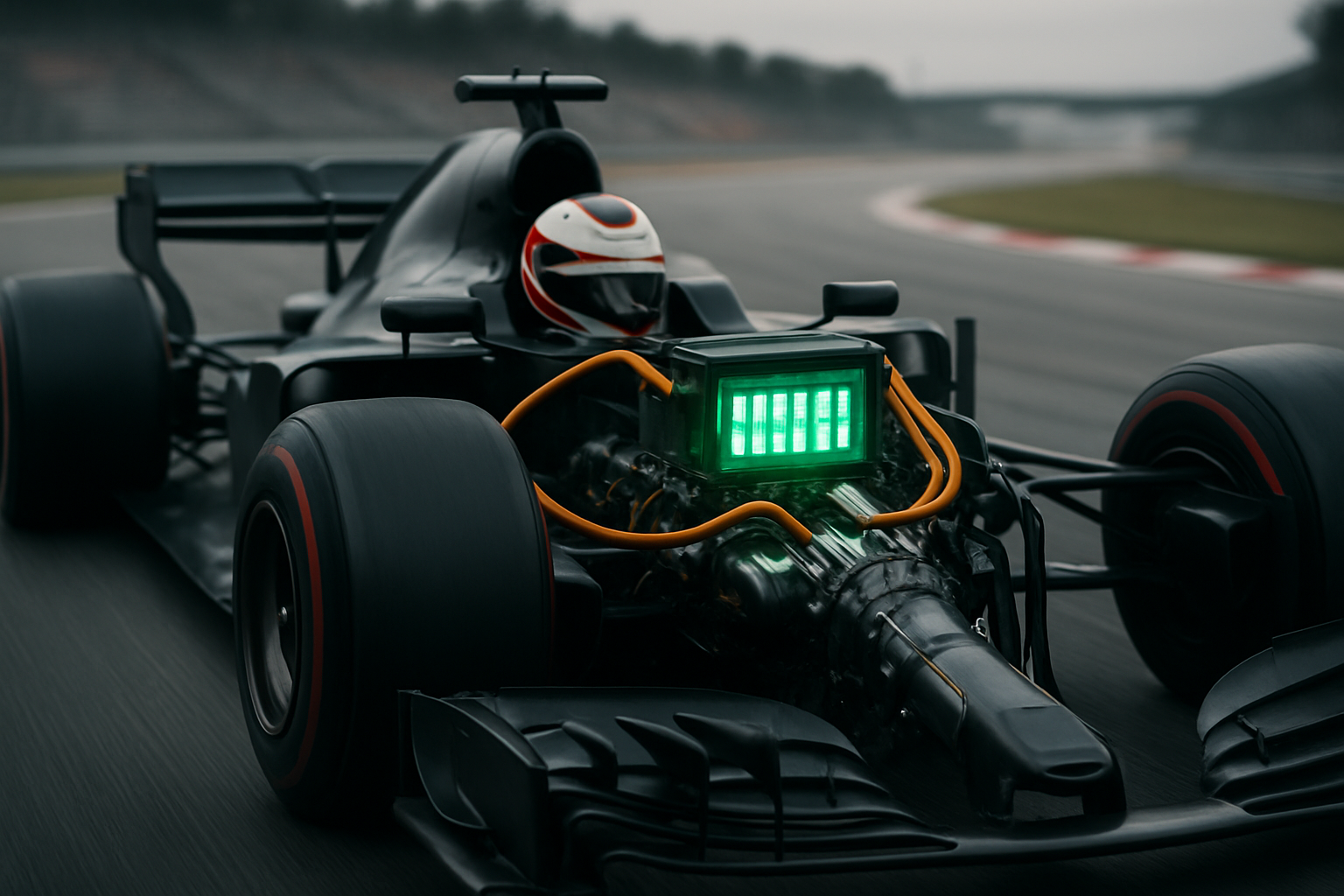Exploring the Potential of Synthetic Fuels in Motorsport
The roar of engines, the smell of burning rubber, and the thrill of high-speed competition have long been the hallmarks of motorsport. But as the world grapples with environmental concerns, the racing industry faces a crucial challenge: how to maintain the excitement and performance while reducing its carbon footprint. Enter synthetic fuels, a promising solution that could revolutionize the way we power race cars and potentially reshape the future of motorsport.

The Science Behind Synthetic Fuels
Synthetic fuels, also known as e-fuels or power-to-liquid fuels, are created through a complex process that combines hydrogen with carbon dioxide. The hydrogen is produced through electrolysis of water, while the carbon dioxide is captured from the atmosphere or industrial processes. When renewable energy sources power this production, the resulting fuel can be nearly carbon-neutral.
The chemical composition of synthetic fuels can be tailored to mimic traditional petroleum-based fuels, allowing them to be used in existing internal combustion engines with little to no modification. This characteristic makes synthetic fuels particularly attractive for motorsport applications, where performance and compatibility with current technology are crucial.
Historical Context and Technological Developments
The concept of synthetic fuels isn’t new. During World War II, Germany developed synthetic fuel technology to compensate for its lack of oil reserves. However, the process was energy-intensive and economically unfeasible in peacetime. In recent years, advancements in renewable energy and carbon capture technologies have reignited interest in synthetic fuels.
Motorsport has a long history of driving technological innovation, and synthetic fuels are no exception. In 2022, Formula 1 announced its commitment to becoming carbon neutral by 2030, with synthetic fuels playing a key role in this strategy. This move has spurred research and development in the field, with major automotive manufacturers and fuel companies investing heavily in synthetic fuel technology.
Current Applications in Motorsport
Several racing series are already experimenting with synthetic fuels. The World Endurance Championship (WEC) has been using a blend of synthetic fuel since 2022, with plans to increase the percentage of synthetic content in the coming years. Similarly, the Deutsche Tourenwagen Masters (DTM) series has announced its intention to transition to synthetic fuels by 2023.
These early adopters are paving the way for wider implementation across motorsport. The data gathered from these real-world applications is invaluable for refining the technology and demonstrating its viability in high-performance environments.
Performance Implications and Engineering Challenges
One of the most exciting aspects of synthetic fuels is their potential to maintain or even enhance engine performance. By fine-tuning the molecular structure of the fuel, engineers can optimize it for specific engine designs and racing conditions. This could lead to increased power output, improved fuel efficiency, and reduced engine wear.
However, the transition to synthetic fuels is not without challenges. Engine manufacturers must adapt their designs to fully exploit the properties of these new fuels. This includes optimizing combustion chambers, adjusting fuel injection systems, and recalibrating engine management software. Additionally, the production of synthetic fuels at scale remains energy-intensive and costly, presenting economic hurdles that must be overcome.
Environmental Impact and Sustainability
The primary appeal of synthetic fuels in motorsport lies in their potential for carbon neutrality. By capturing CO2 from the atmosphere to produce the fuel, and then releasing that same CO2 when the fuel is burned, a closed carbon cycle can be achieved. This could allow motorsport to significantly reduce its carbon footprint without abandoning the internal combustion engine technology that has defined racing for over a century.
Moreover, the development of synthetic fuels in motorsport could have far-reaching implications beyond the racetrack. The technology could potentially be applied to other forms of transportation, including aviation and shipping, which face significant challenges in transitioning to electric power.
The Future of Synthetic Fuels in Racing
As synthetic fuel technology continues to evolve, we can expect to see its adoption spread across various motorsport disciplines. Formula 1’s commitment to synthetic fuels is likely to accelerate development and could lead to breakthroughs that benefit the entire automotive industry.
The integration of synthetic fuels into motorsport also opens up new avenues for competition and innovation. We might see races where teams compete not just on the track, but also in developing the most efficient and powerful synthetic fuel formulations. This could usher in a new era of motorsport where environmental responsibility and cutting-edge performance go hand in hand.
In conclusion, synthetic fuels represent a promising path forward for motorsport in an increasingly environmentally conscious world. By embracing this technology, the racing industry can continue to thrill fans with high-performance competition while also contributing to the development of sustainable transportation solutions. As we look to the future, the roar of engines powered by synthetic fuels may well become the sound of progress in motorsport and beyond.






